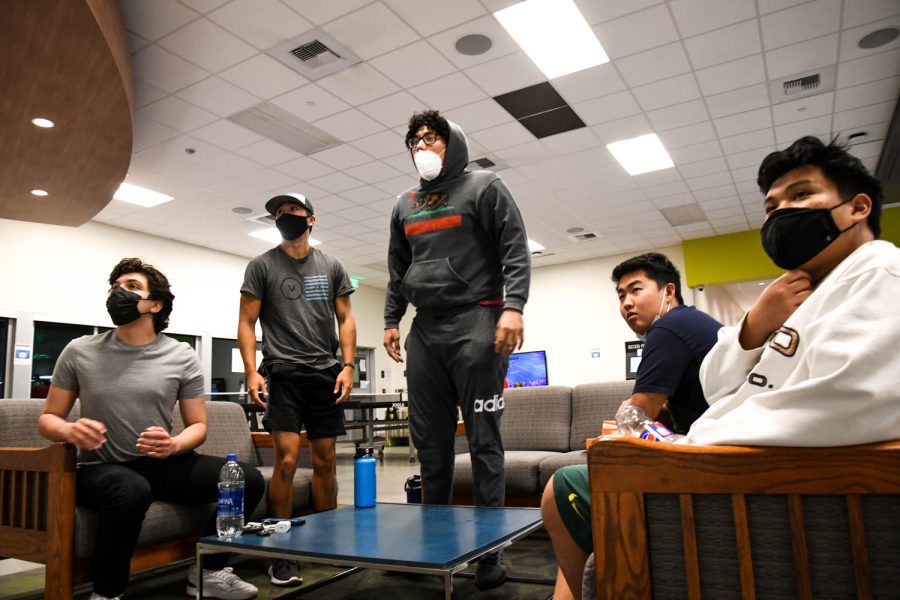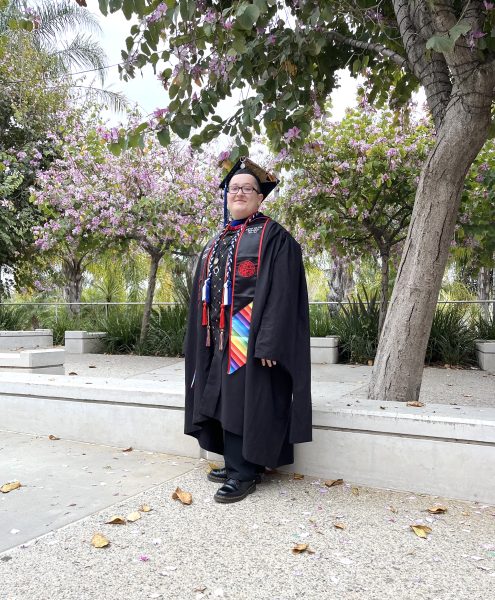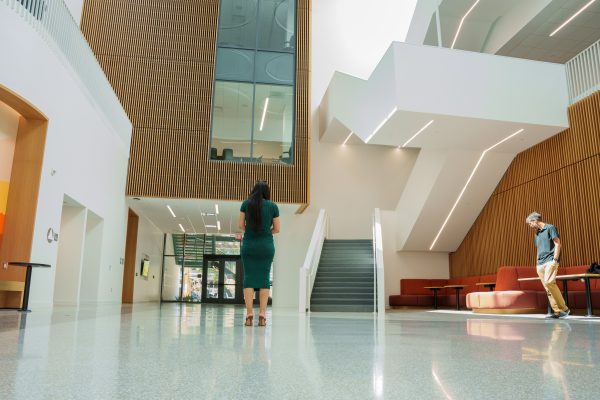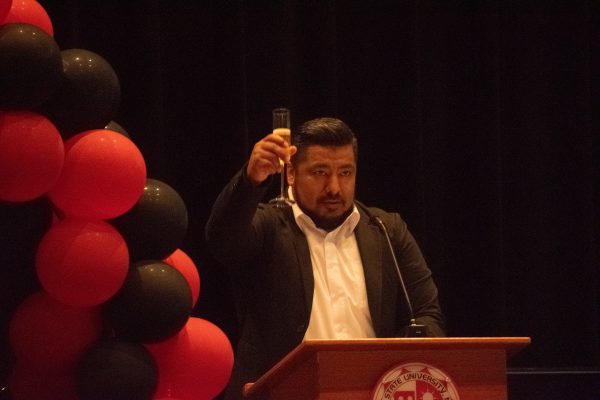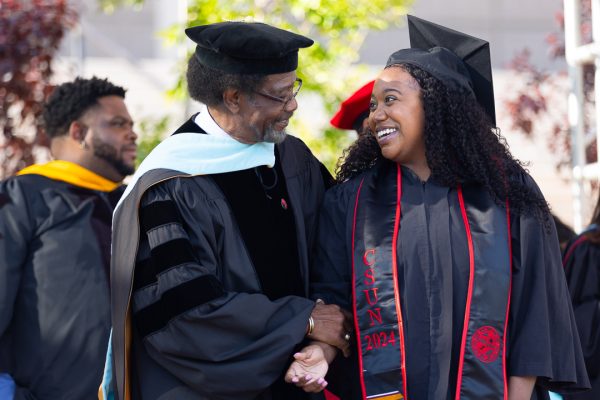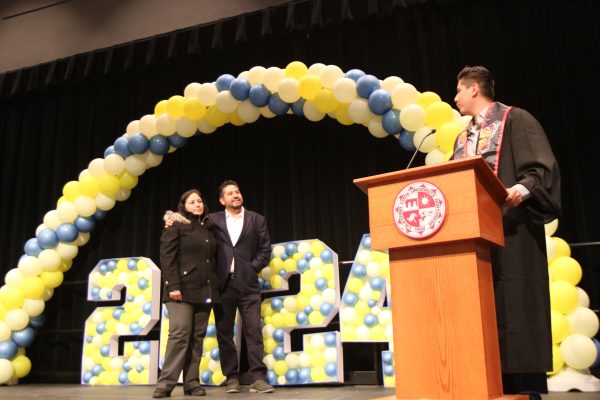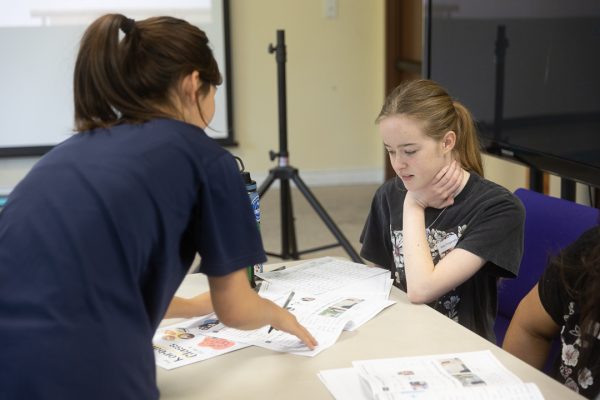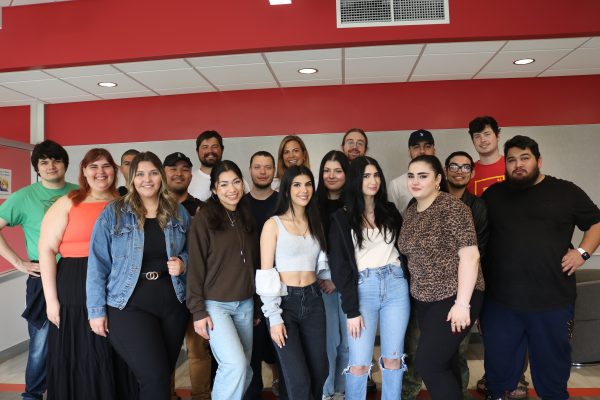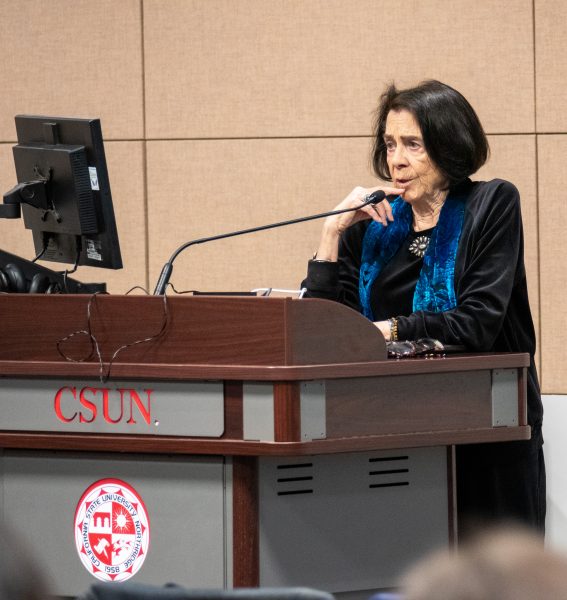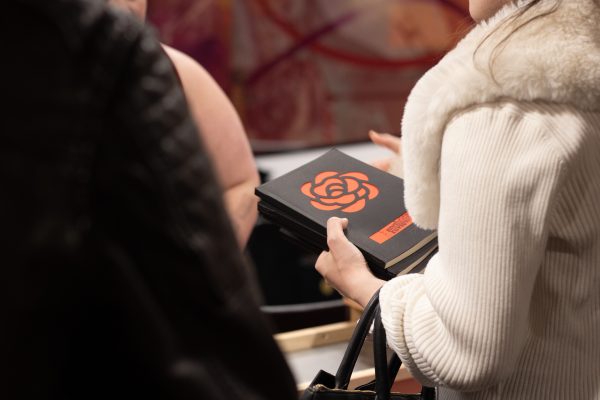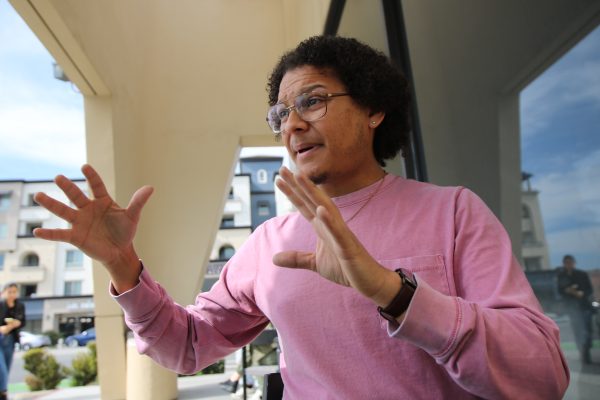CSUN housing sees increase in COVID-19 cases
Marco Pineda, Scott Igawa, Chris Hernandez, Riley Kaneshiro and Matthew Cabato watch the Super Bowl in the community center room at CSUN on Feb. 13, 2022, in Northridge, Calif.
March 1, 2022
More students living in CSUN housing are testing positive for COVID-19 this semester than last fall.
There is currently an average of 15 to 20 students in isolation housing at any given time, as opposed to an average of 10 students at a time towards the end of last semester, according to CSUN housing Director Claire Davis.
The amount of positive cases has gotten so high that administrators have opened the third floor of Torrey Pine Hall, a building that is used for quarantining students.
Roughly 2600 students lived on campus during the fall 2021 semester, while around 2500 students reside in dorms today, according to Davis.
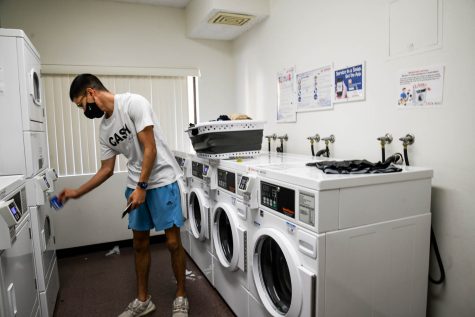
CSUN has protocols in place in the event that a student in housing contracts COVID-19. The protocols are based on guidelines from the Centers for Disease Control and Prevention, the Los Angeles County Department of Public Health, and the CSUN Emergency Operation Center.
Weekly COVID-19 testing is required for all CSUN residents regardless of their vaccination status. The university offers three spots for free testing, one of them being in the housing area.
Positive results for COVID-19 are detected by the weekly tests gathered by the Klotz Student Health Center, and the housing office is then notified that certain students tested positive. A new room is then assigned to the student in Torrey Pine Hall to quarantine.
The university is cleaning shared spaces and offering hand sanitizer and free masks at both the community center and the housing office to help prevent the spread of the virus.
Students who test positive for COVID-19 receive an email from the housing office with a checklist of what they need to bring with them.
Louise Liberalesso, a first-year dorm resident at CSUN who tested positive for the virus this semester, said that the email she received from CSUN was also filled with questions about her vaccination status, where she was isolating, and asked if she had contact with her roommate or other people outside the dorms and campus area.
The reason students are asked about their vaccination status is because dorm residents need to be fully vaccinated or have an official religious or medical exemption to live on campus.
Students who contract the virus are isolated for six to 10 days regardless of their vaccination status.
Davis shared that roommates of those who test positive only need to quarantine if they feel unwell or receive a positive test result, and not simply because they’ve been exposed.
Liberalesso said that housing and Geronimo’s together provided meals for her while in isolation.
So far no student has had symptoms as severe as some students did last year.
“There hasn’t been anybody who was really ill [this semester], but we had a couple of folks last year that stayed a couple of weeks more than the regular 10 days because they were just not well,” Davis said.
As a preventative measure, housing is still restricting outside visitor access. However, resident students are allowed to visit each other in dorms.
“That’s tough because it is a dorm environment and [dorm] activities are key,” Davis said.
The housing department is also offering mental health and counseling services to students as a way to help residents cope during the pandemic. Appointments for telehealth wellness coaching can be made through the Klotz Center.
